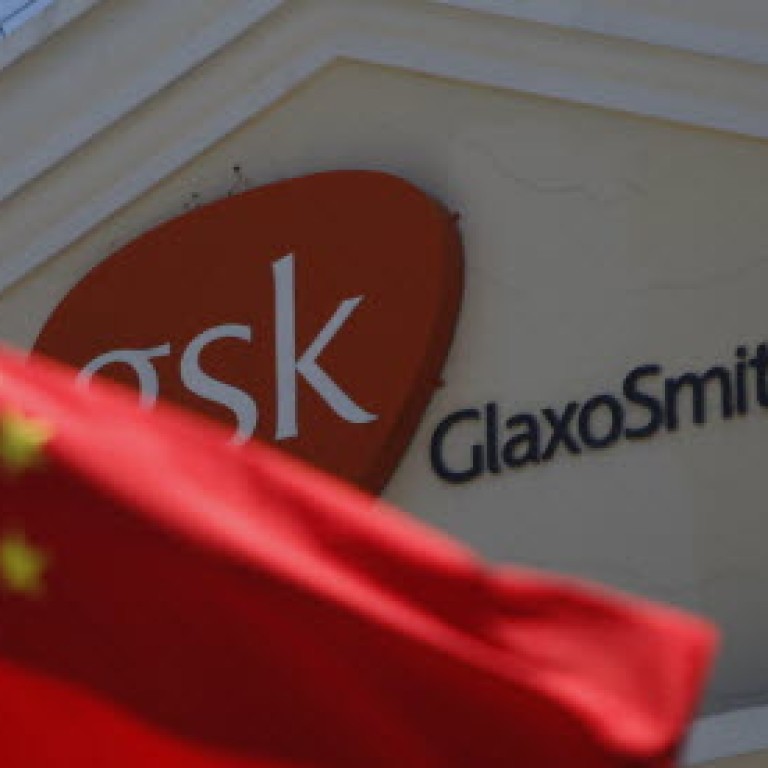
Drug company bribes hurt China's health care system
Cesar Chelala says rampant unethical practices raise prices and lower the quality of medical care
In China, relationships between doctors and patients are under stress. One reason is the unethical behaviour among some doctors and drug companies. Although the practice of bribing doctors is not new in China, new allegations have surfaced recently against some well-known drug companies that call for new and more effective measures against this practice.
Over recent decades, China has become an increasingly important market for international pharmaceutical companies which have come to rely on it, and other emerging markets, to offset declining sales in leading industrialised countries, where many high-profit drugs have lost patent protection. The Economist Intelligence Unit estimates that drug sales could total US$166 billion in China by 2017, making it an attractive market for companies looking for further growth. The revelation of corrupt practices, however, is a cause for concern.
It’s not only drug companies that bribe doctors. Patients bribe doctors to get procedures done
The unethical relationship between doctors and drug companies harms both patients and doctors: it harms patients because it brings a corrupting component to their medical care and it harms doctors because it alters the quality and character of their care. In addition, it hinders the proper functioning of the health care system in the country and increases drug costs. According to some estimates, up to 30 per cent of the cost of drugs is kicked back to doctors to increase sales.
There are several ways in which doctors are bribed by drug companies. They range from cash payments, hospitality and all-expenses-paid trips, to gifts for their families and even "sexual favours". Drug companies also bribe hospitals to stock their drugs so that doctors can prescribe them. It's not only drug companies that bribe doctors, though. Often, patients bribe doctors to get procedures done, or done earlier.
Among the allegations against GlaxoSmithKline (GSK) is that its staff improperly used cash and other incentives to boost the prescription of Botox in China, which the British group sells under agreement with the patent-holder Allergan.
Although China accounts for only a portion of the company's total sales (about US$1.2 billion in 2012 compared to US$40 billion in worldwide sales), the country is one of the company's fastest growing markets.
Allegations against GSK are not limited to China. Last summer, the company agreed to pay a US$3 billion fine to settle criminal and civil charges with US federal and state governments resulting from illegal activities carried out for more than 10 years. It was accused of selling antidepressant medication in the US for unapproved use on children, and concealing critical evidence from the US Food and Drug Administration.
The British pharmaceutical giant is, however, not the only one in trouble. In recent months several other companies have been accused of rampant bribery, among them Eli Lilly, Pfizer, AstraZeneca, Sanofi, Novartis, Novo Nordisk and UCB.
Over the past year, both Eli Lilly and Pfizer have been accused of making illegal payments in China. A former employee of Eli Lilly has accused the company of spending US$5 million to bribe doctors in China. The Swiss drug maker Novartis was also accused of bribing doctors to prescribe its anti-cancer drug Sandostatin LAR.
Some claim doctors in China are prone to bribery because of the extremely low salaries they receive. For example, a doctor just out of medical school in Beijing earns approximately 3,000 yuan (HK$3,800) a month, including bonuses - a salary equivalent to that of a taxi driver, and it is even lower for those in rural areas. For some physicians, the main part of their salary comes from both patient and drug company bribes.
For some observers, corruption extends far beyond the pharmaceutical industry and encompasses many other aspects of Chinese market practices. Others claim it is a cultural behaviour; you get things done based on the people you know. Either way, particularly in the practice of medicine, it is a behaviour that persists to the detriment of people's health.
Although the government cannot easily raise doctors' salaries - since it would come under similar pressure from all public sector workers - regulating agencies should put a ceiling on drug prices, and make sure these are not circumvented. New and stricter regulations should be established to prohibit doctors from accepting bribes, with large fines for companies which offer the bribes.
China wants to make health care affordable for its citizens. An important step is to eliminate bribes to doctors for their services. Also, as stated by the prestigious medical magazine : "Training for doctors in China on managing their relationships ethically with the drug industry and other organisations should start at medical school and be part of continuing professional education."
